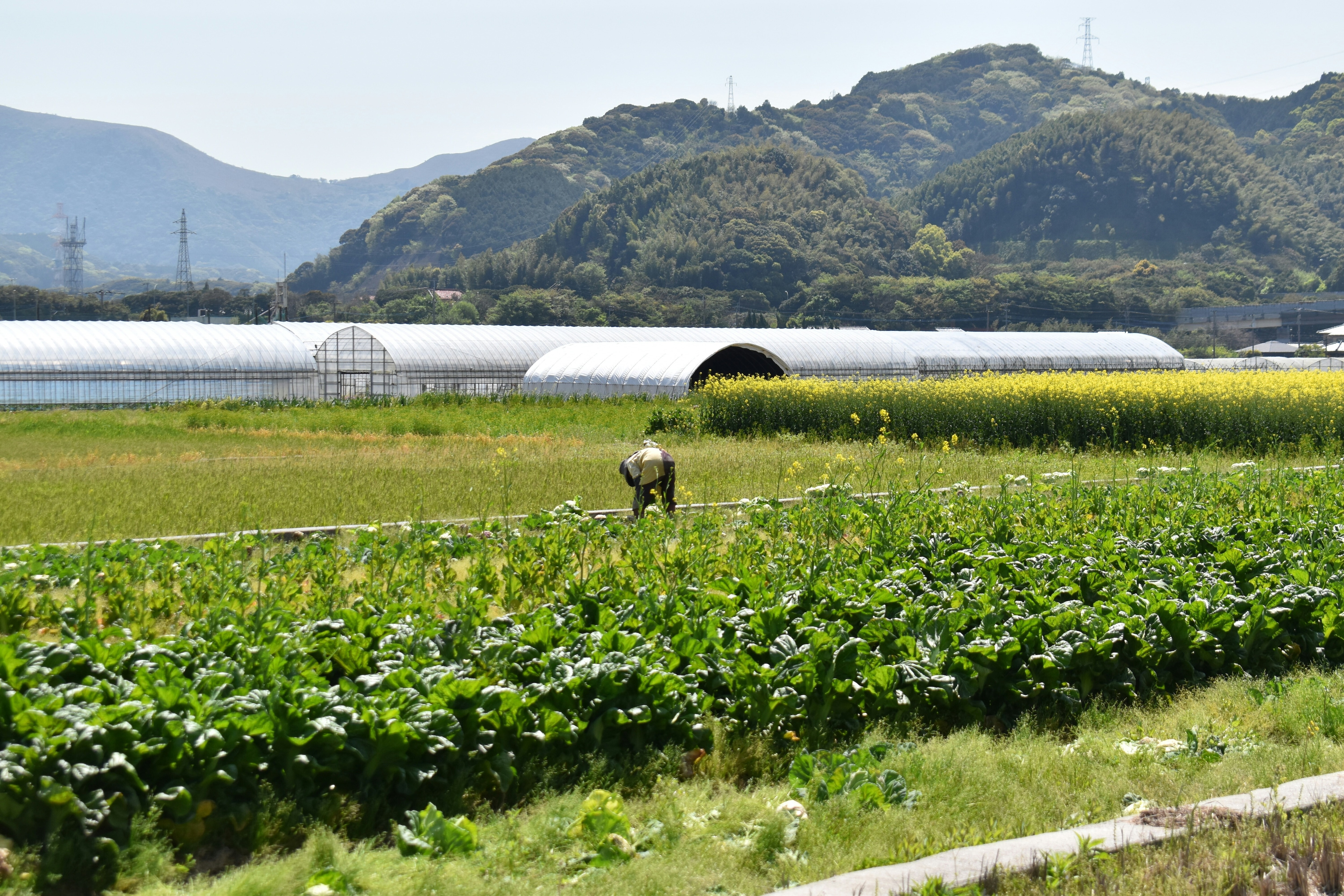This African trade deal could improve lives across the whole continent

Image: REUTERS/Charles Placide Tossou
After a decade of strong economic growth at the start of the millennium, Africa now faces a less favourable external economic environment – which has led to a slowdown in the economy at home.
The planned Continental Free Trade Agreement (CFTA) has the potential to reinvigorate Africa's development at this watershed moment. It could prove crucial for the creation of well-paying jobs, especially for Africa's youth, but political leadership focused on African integration will be decisive.
Africa risks being left behind
Weaker commodity prices and slowing demand in emerging economies have dampened the outlook for Africa’s commodity export revenues. Western donor attention has substantially shifted to the refugee and migrant crisis in Europe, and tighter external financial conditions for Africa's frontier markets have led to sizeable capital outflows.
At the same time, we’re still seeing illicit financial flows, in part down to weak taxation regimes and a race to the bottom for investment incentives. Severe drought in parts of Southern and Eastern Africa is also putting millions of people at risk of famine.
There is also a strong chance that Africa could be left behind on the technological front – as we have seen before. Manufacturing value chains in Africa are often depicted as the next logical place for foreign investment to flow, as the price of labour gets more expensive in China and the country is moving its focus away from exports to domestic consumption.
But with innovation rapidly making a robot workforce a real possibility in countries like the US, China, Germany and Japan, and low-cost energy and stagnating wages meaning manufacturing jobs are undergoing a “reshoring”, it is now possible that Africa’s low-cost advantage may not materialize. A weaker global economy and lack of import growth in Europe are casting further shadow over Africa's aspirations to integrate into manufacturing networks. In the context of this and Africa's declining influence in multilateral trade rules-making, Africa needs to set her sights on a new frontier of hope.
A game-changer
The CFTA could be the game-changer that reverses this state of affairs. Today, cross-border trade deals, such as the “mega-regional” Trans-Pacific Partnership, Trans-Atlantic Trade and Investment Partnership, and the Regional Comprehensive Economic Partnership, focus on regional arrangements as the source for creating new trading, employment and income generating opportunities.
The time is now for Africa to work towards its own mega-regional. Africa’s CFTA has substantial room to increase trade growth dramatically, and to pave the way for the industrialization and economic transformation necessary for African countries to achieve the ambitious targets of the global Agenda 2030 and Africa's own Agenda 2063.
UNCTAD estimates that implementing the CFTA will roughly double the share of intra-African trade (currently around 13% of African exports) by early next decade. And if past experience is any guide, tariff reductions may even increase trade tax revenue.

Manufacturing export sectors will be the biggest beneficiary, in line with current trends that suggest the sector is already doing well in intra-African trade.
Agriculture will also get a boost through the creation of a more viable African marketplace for food. Enhanced trade in agricultural products will also increase prospects for agro-processing, creating dynamic linkages with manufacturing. And the impact will be even greater if non-tariff barriers are addressed, if informal trade is integrated into formal trade channels, and if services liberalization takes place.
Improving lives
For the CFTA to improve Africa’s growth prospects over the long term, policy-makers and negotiators should keep a few key issues in mind.
To maximize the gains, the CFTA should include both a goods agreement and a services agreement. Developing regional markets is important for trade in services and other important new issues, like e-commerce, which are critical to Africa’s future. We need to reach agreement on joint regional harmonization and regulatory cooperation in these areas of growing importance. Otherwise we lose the opportunity to collectively regulate service provision, provide consumer protection, tax, and earn tax revenue effectively from the multinational players already doing business in this space in Africa.
Equally, the CFTA should ensure the removal of non-tariff barriers, facilitate convergence on regulatory measures, and enhance trade facilitation. The CFTA can potentially amplify the return on investment in trade facilitation – not only by improving connectivity, cutting red tape and accelerating turn-around times of transportation material to fuel export growth, but also by increasing the imports that are crucial to building productive capacity, enlarging firm size and accelerating productivity growth with a view to advancing industrialization and export diversification in Africa. But doing so requires reliable infrastructure, a coherent regulatory framework, and a unified set of standards across the continent.
The CFTA will need to be accompanied by a massive scaling up of private and public efforts to invest in cross-border infrastructure on the continent. Addressing Africa’s physical infrastructure gap will require a substantial programme of investment, estimated at $93 billion per year.
UNCTAD data shows that Africa's foreign direct investment stock has grown six times over from $90 billion in 1995 to $700 billion in 2014, but public authorities and private stakeholders need to work together to ensure that this base continues to grow and that new investment goes into the infrastructure sectors that are needed most: transport, power generation and information technology, for example. Linked to this is the critical role of liberalizing infrastructure-related services in the CFTA, so as to provide a bedrock for effective trade integration.
But cross-border soft infrastructure must also be taken into account. Taking a bottom-up approach by listening to border communities and to small- and medium-sized enterprises that operate across borders, norm-setting in the CFTA can add the crucial link that will help consider the challenges and needs of those that play a key role in creating livelihoods from opening borders.
Uneven gains
The gains from CFTA, while potentially large, will also be uneven. Countries with large manufacturing bases may gain more – including through the provision of substantial formal sector employment and income opportunities for the burgeoning African youth population. However, smaller least-developed countries may see some fiscal revenue loss and destruction of local industries. That said, the CFTA can also spur rural development, which is particularly important for economic transformation and the creation of well-paying jobs. African governments must work so that no one is left behind by the CFTA, and to ensure that the gains are distributed fairly.
This means realizing the significant potential of Africa’s least-developed countries to create regional value chains in agriculture and agro-processing. It also means continuing to improve all countries’ administrative and institutional capacities to help efficiently tax and redistribute the gains from CFTA. In the shorter term, traditional flexibility instruments – encapsulated in special and differential treatment – will have to be considered to limit the damaging effect on the most vulnerable. In the long-run, the initial pains in some smaller economies will give way to gains, if the right policies are in place across the continent.
Breathing new life into African trade
The time is ripe for Africa to be ambitious on the CFTA. As the negotiations move forward we will know more. But whether or not the CFTA can become Africa’s own “mega-regional” depends on whether it is pitched at the right level of ambition that can trigger a truly transformational approach to African trade integration.
The CFTA can breathe new life into the trade and development prospects of the continent. All it needs are the right policies in place, as well as strong political leadership and private sector engagement both nationally and regionally.
This article is part of our Africa series. You can read more here.
The World Economic Forum on Africa is taking place in Kigali, Rwanda from 11 to 13 May.
Don't miss any update on this topic
Create a free account and access your personalized content collection with our latest publications and analyses.
License and Republishing
World Economic Forum articles may be republished in accordance with the Creative Commons Attribution-NonCommercial-NoDerivatives 4.0 International Public License, and in accordance with our Terms of Use.
The views expressed in this article are those of the author alone and not the World Economic Forum.
Stay up to date:
Trade and Investment
Related topics:
Forum Stories newsletter
Bringing you weekly curated insights and analysis on the global issues that matter.
More on Geographies in DepthSee all
Alireza Haghighi and Khalid Alaamer
February 24, 2026






